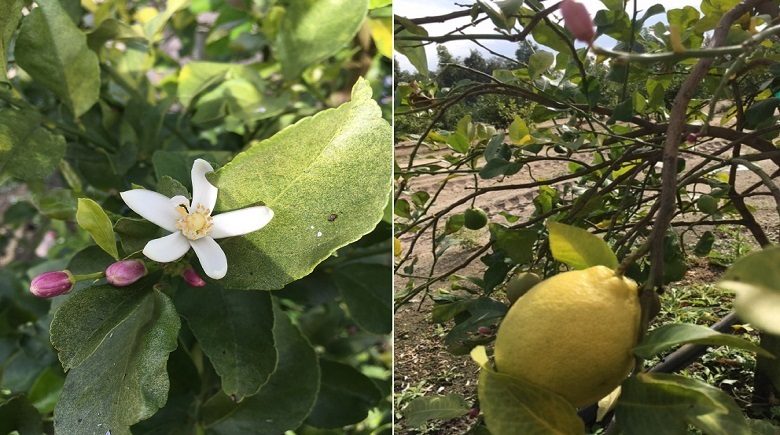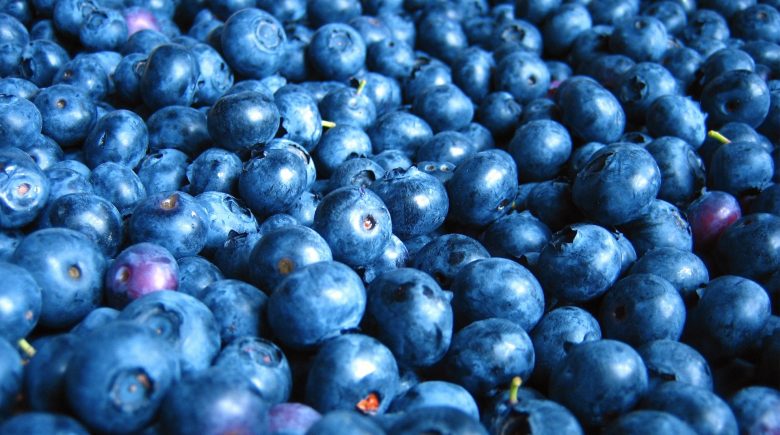Polk County Businesses And Farms Work Hard To Adapt To COVID-19 Crisis

by James Coulter
Joe Garrison, owner of Garrison Land Management Inc. and Garrison Property Services, LLC, has run his family-owned businesses for more than 30 years, and he isn’t allowing the COVID-19 crisis to slow him down.

As a local entrepreneur who owns and operates companies in landscaping and property management, he hasn’t seen either of his businesses greatly affected by the pandemic. Both he and his staff have adapted to their current situation as to better protect their personal safety and health.
At his property management company, his employees have isolated their office for appointments only, they conduct their business by e-mail and video conferencing, and they have been utilizing face and eye protection, Garrison said.
For his other company, citrus proves exceptionally well, with their lemon trees blooming and producing new crops. Rather than COVID-19, the biggest obstacle for their lemons have been drought, as the lack of rain has required them to run their irrigation system more often, he explained.

“Adaption to the virus for us has been so far, so good,” he explained. “We are trying to get the [greatest] possible product this year, especially with the lemons and oranges. Now that Vitamin C is so important to coronavirus, [as] it builds the immune system, Florida citrus will be very good in the years coming because of that.”
While Garrison’s companies have been remaining afloat, other businesses, especially small businesses, both in the county and across the state and nation, have been struggling through the “perfect storm” of the COVID-19 outbreak.
Nearly half (43 percent) of small businesses say they may shut down permanently in the next six months due to the economic conditions and restrictions created by the outbreak, according to a recent survey on MarketWatch.
“24% have already shut down on a temporary basis, and 40% of the small businesses that are still open say they will probably have to close temporarily close within the next two weeks,” MarketWatch reports.
Last week, the Senate passed a $480 billion relief package that includes billions of dollars in funding for small businesses hurt by the outbreak. This funding includes $10 billion for grants under the Emergency Economic Injury Disaster Loan program, $50 billion for disaster recovery loans, and $2.1 billion for additional salaries and expenses for the Small Business Administration, CNN reports.
Florida agricultural industry has especially taken a devastating toll, as the state has suffered $522 million in crop losses created by the outbreak, according to a new report produced by the Florida Department of Agriculture and Consumer Services.
Most of these crop losses have been due to resturaunts closing their dining halls during the state’s mandated stay-at-home order passed by Gov. Ron DeSantis earlier this month, and which will continue until April 30, the Sarasota Herald-Tribune reports.
“A lot of our agriculture brothers and sisters in business have not been doing well,” Garrison said. “Milk and vegetables [have especially been hurt] because the eateries are shut down. They are not doing well at all, and we are hoping that our lemons and citrus are doing well. But then again, if the eateries are shut down, they are a big purchaser of Florida agriculture.”
Complicating matters has been foreign trade. While many local and state farmers are throwing away their crops because they are unable to sell them, produce is being purchased from foreign markets such as Mexico and Argentina. Such harsh competition is unfair to local farmers, and federal assistance will be much appreciated to help strike a proper balance, Garrison explained.
“We are going to remain optimistic and work hard every day with our lemons and our groves, and try to produce the best possible citrus that we can, and that is all we can do,” he said. “We wake up every morning and go to work to do the best we can. We hope to have a good harvest and market, and hopefully, by then, this virus will be over. That is all we can do: work and pray every morning, and that is the best we can do take it day by day.”
One major crop loss in Florida are with blueberries, with an estimated $50 million in losses, as reported by the Herald Tribune. These losses cut into high estimates made earlier during the season, as the Tribune reports: “At the beginning of the season, blueberry farmers expected to harvest 24 million pounds but will only harvest about 40%.”
Lora Donley, whose family owns a local blueberry farm and packing house, has seen how the outbreak has affected other farmers such as herself, but she has also seen the community come together to help pull themselves together.
“In spite of the virus, I am pretty impressed with how the community has come together to support each other through this really trying time,” Donley said. “Farming is difficult on its own, but when combined with the pandemic, it is worse. But the community has really come together. I am pretty pleased.”

The problems compounding blueberry farming partly involve the expensiveness of the fruit. As blueberries are more expensive, very few people can afford them, and less people are especially willing to buy them during a crisis such as the current outbreak, she explained.
However, through word of mouth and cooperation among the local community, locals have managed to pull through to help support local farms. She encourages other people to provide their own support by reading labels while purchasing groceries and to buy produce from locally grown farms.
“This pandemic may not happen next year, and we still have to be able to support our local farmers, so anyone who wants to spend the extra few dollars, spend it to support a local family that may live down the road from you,” she said.

